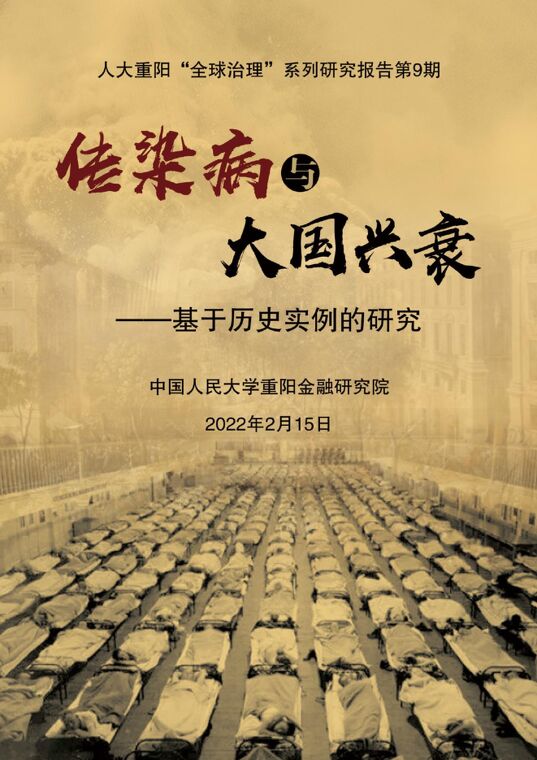2022年 传染病与大国兴衰:基于历史实例的研究.pdf
摘要 : is changes the way we view the impact of infectious diseases on the rise and fall of great powers. While classic works in economics and international relations explore the reasons, processes, and logical evolution of the rise and decline of major powers from a macroscopic perspective, there is rare research on the micro perspective of infectious diseases. The COVID-19 pandemic of 2020 has had an unprecedented impact on national development and global circumstances, leading famous international political scholars, such as Henry Kissinger, to recognize its epoch-making global significance. This has prompted a theoretical exploration of the historical laws and logic of how infectious diseases impact the rise and fall of great powers from the perspective of the virus as a small but highly influential variable. The article summarizes the ideas of the medical, historical, and international relations communities on the study of infectious diseases over the past century and explores three historical laws: low probability of a pandemic leading to the rise of a major power on an endemic area, high probability of a pandemic leading to the downfall of a major power, and the impact of virus infection on major powers' variability. The author argues that uncovering the historical transmission rules for infectious diseases' impact on the rise and fall of great powers is of great significance for a more systematic understanding and exploration of the driving forces of national development. It can also contribute to finding solutions to the "Thucydides trap" in Sino-US relations and reconstructing the future narrative of major power competition from the perspective of a human community of destiny.

相关报告
-
5.41 MB 47页 全球家清家护趋势与未来2022:未来几年的产品创新方向-英敏特-202304.pdf
-
5.46 MB 88页 2022-2023年全球人才趋势研究——人性化企业的崛起-美世-202303.pdf
-
4.52 MB 60页 央国企信创白皮书:基于信创体系的数字化转型(2022年).pdf
-
3.19 MB 35页 银行业:基于2009年与2015-2016年历史回溯的分析-“稳增长”时期的银行股行情演绎
-
3.23 MB 35页 银行业基于2009年与2015-2016年历史回溯的分析:“稳增长”时期的银行股行情演绎
-
4.93 MB 35页 传媒行业元宇宙与Web 3:2023,硬件的“大”年-安信证券-20221108.pdf
-
1.38 MB 30页 2022年3月 促进公众绿色低碳生活方式的行动策略-案例与建议.pdf
-
2.23 MB 25页 可选消费行业深度研究:中餐西渐,舌尖上的大国崛起-华泰证券-20221020.pdf
-
3.28 MB 30页 [华泰证券] 成长股投资时钟:速度与加速度的博弈 (2022年3月).pdf